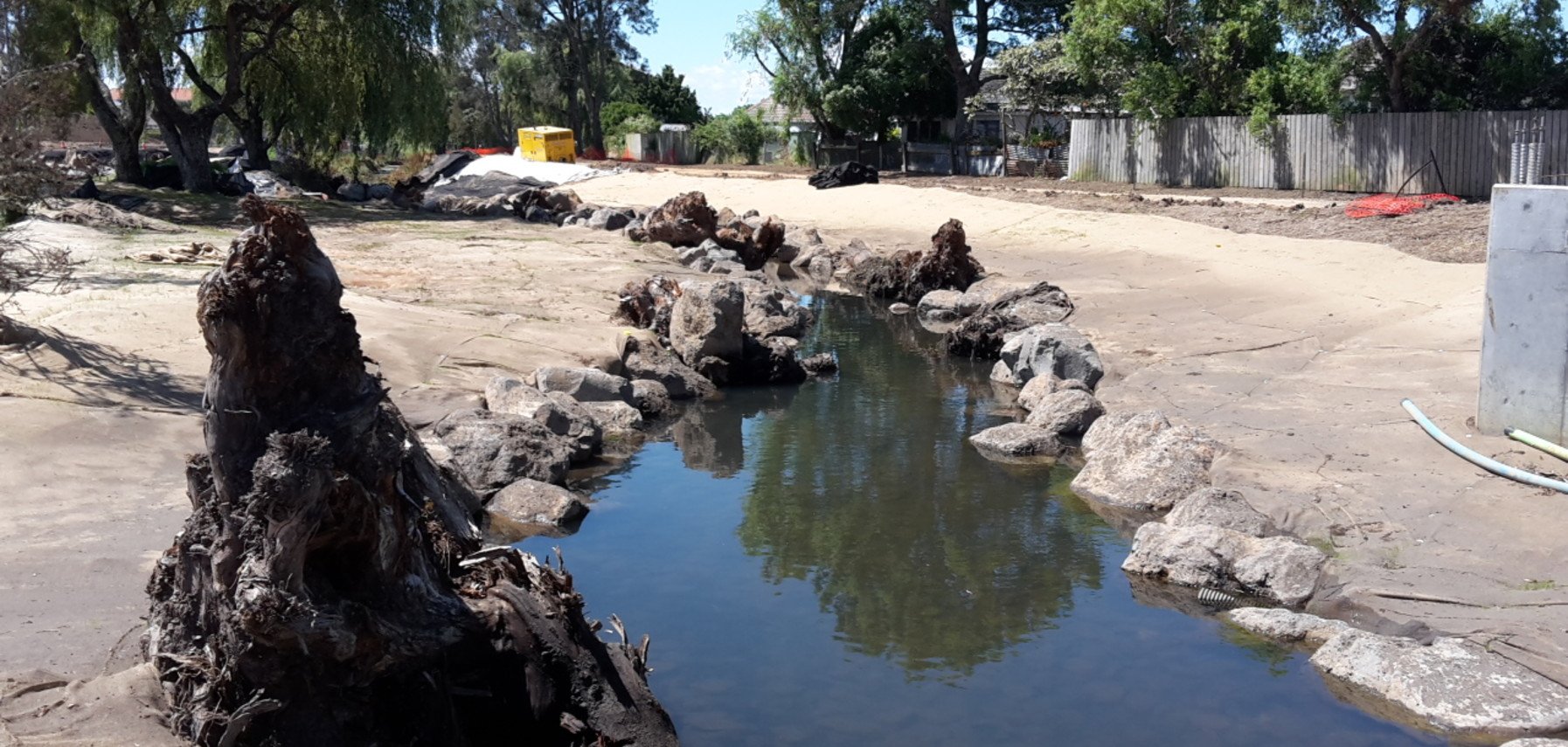Making space for water
NZILA Climate Action Working Group member Matthew Bradbury has welcomed an initiative by Auckland Council which would accelerate planned flood management works across the region.
Mayor Wayne Brown is backing the “Making Space for Water” programme which aims to deliver in six years, what would normally take around three decades. It will be presented to the counci’s governing body in June.
The programme is being developed by Healthy Waters as part of Auckland Council’s flood recovery programme and led by the Recovery Office.
It has planned nine initiatives which range from increased stormwater maintenance and stream rehabilitation to blue-green projects and site-specific solutions for high-risk properties.
“We need to make space for water to move safely through the region without causing unacceptable risk to people, property, infrastructure, and the environment,” Wayne Brown says.
Cox’s Bay Park on May 21 after moderately heavy rain.
“Preparing for floods is an important part of climate change adaptation. We are taking action to drive significant progress, and deliver on our commitment to giving communities the tools they need to be resilient.
Speaking on RNZ’s Nine to Noon programme Matthew Bradbury, who is also an associate professor in the landscape architecture programme at Te Pūkenga and the author of Water city, told host Kathryn Ryan he believes it is a fantastic initiative.
Te Auaunga is an Auckland Council Healthy Waters project in Mt Roskill, Auckland that prevents flooding from nearly 200 homes in three Local Board areas, enables housing intensification in a brownfield site, and established a river park along Te Auaunga. It won a 2019 Resene NZILA Award of Excellence.
“These nine initiatives the mayor is talking about are all really practical, pragmatic solutions to kind of the problems we saw in January .. I think it's a great start.”
The nine initiatives are;
Blue-green networks in critical flood-risk areas: Stormwater solutions (stream daylighting, widening, and realignment), enhancing parkland or open space, and property acquisition and removal.
High-risk properties: Working with property owners on engineering solutions, managed retreat, and property acquisition.
Culvert and bridge upgrades: The assessment, replacement, and upgrade of vulnerable assets.
Overland flow path management: Work to repair, maintain, and monitor overland flow paths, and educate property owners.
Rural settlements: Responding to three waters needs in storm-affected communities including marae and papakāinga, and supporting community resilience planning.
Flood intelligence: Investment in planning and modelling tools to enhance council decision-making.
Stream rehabilitation: Vegetation management, slope stabilisation, bank battering, stream channel modification, and advice for property owners.
Community-led flood resilience: Advice for property owners in high-risk areas, industry-specific advice, public events, and awareness campaigns.
Increased maintenance: Maximising stormwater networks’ efficiency, including street sweeping, catchpit cleaning, and weed clearance from streams.
Matthew believes if these goals can be achieved, Auckland would become a greener and more beautiful city. “I think the upside is we're actually going to end up with a really more beautiful city, a greener city, a city with more parks and a city where we, the growing population, has more access to that green space.”
You can hear the full Matthew Bradbury interview in the audio file above.

